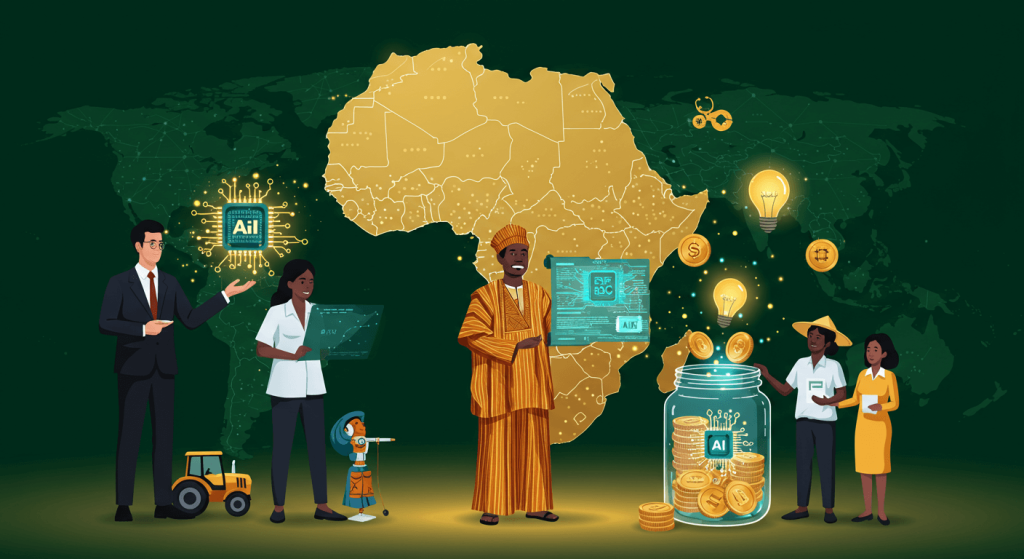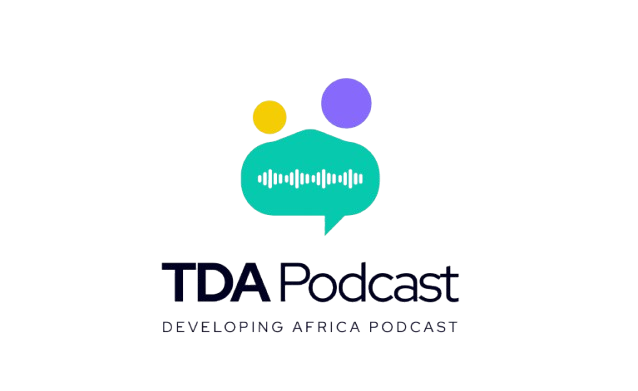
Detailed Analysis of Funding the AI Revolution in Africa
The funding of Artificial Intelligence (AI) in Africa is a critical issue, given the technology’s potential to drive economic growth and social development. As of March 11, 2025, the discourse around who will fund this revolution—Big Tech, governments, or the public—remains open, with no single answer sufficing. This note provides a comprehensive analysis, drawing from recent research and initiatives, to explore the roles of each potential funder and propose a multi-pronged strategy, emphasizing the importance of smaller, task-specific AI models.
Current Landscape and Challenges
AI stands ready to fuel global economic growth, with projections indicating it could generate up to $15.7 trillion by 2030, including $1.2 trillion in Africa, boosting the continent’s GDP by 5.6% (AI and Africa) Yet, Africa confronts barriers like insufficient funding, weak infrastructure, and a scarcity of skilled experts. Studies forecast that Africa’s AI market hit US$5.20 billion in 2023 and will grow at 19.72% annually through 2030, reaching US$18.33 billion (Top AI Companies in Africa). Still, funding shortages persist, as high R&D costs and limited computing access create major hurdles.
Options for Funding: Big Tech, Government, and Public
Big Tech giants like Google, Microsoft, Amazon, and Meta dominate AI globally, projecting a combined $325 billion in capital spending for 2025, fueled by AI infrastructure (Big Tech AI Spending). In Africa, these companies expand their footprint—Google launched its first cloud region in South Africa in 2022, while Microsoft collaborates with local governments and universities (South Africa’s AI Policy). These investments unlock advanced technology and global connections, but critics worry that profit motives might clash with Africa’s needs. For example, data exploitation and loss of AI control threaten the continent, especially since it often depends on imported solutions (AI Governance in Africa).
| Big Tech Company | Investment in Africa | Potential Impact |
| First cloud region in South Africa | Enhanced computing power, local AI projects | |
| Microsoft | Partnerships with governments, universities | Skill development, AI adoption |
| Meta | Limited direct AI investment, focus on social media | Potential for AI integration in platforms |
Government Funding
African governments are increasingly recognizing AI’s potential, with only a few having adopted national AI strategies as of recent reports, such as Mauritius, Egypt, and Kenya (National AI Policies). Rwanda, for example, has launched the AI for Development Program and established the Seed Investment Fund to co-invest with venture capital in AI startups (AI Governance in Africa). Egypt’s AI Strategy aims to enhance funding for startups and incentivize local AI product purchases (AI Policy Impacts). However, government budgets are often limited, and bureaucratic hurdles can hinder efficient allocation. The UK, in collaboration with Canada and the Bill and Melinda Gates Foundation, is also funding AI projects in Africa, contributing £80 million to support research labs and regulatory frameworks (UK AI Funding). Despite these efforts, the scale of government funding is insufficient compared to global tech investments.
| Country | AI Initiative | Funding Amount | Focus Area |
| Rwanda | Seed Investment Fund | Not specified | AI startups, socioeconomic development |
| Egypt | AI Strategy | Not specified | Startup funding, local AI products |
| UK (Partner) | AI for Development | £80 million | Research labs, regulatory frameworks |
Public Participation and Crowdsourcing
Crowdsourcing offers a grassroots approach to funding, with platforms like Thundafund in South Africa enabling innovators to raise capital for projects, including potential AI initiatives (Crowdfunding in Africa). The AI Community Africa’s Crowd Source Program, in partnership with Google, provides access to AI and ML tools, fostering community engagement (AI Community Africa). However, the funding amounts from crowdsourcing are typically small, estimated at $100,000 per project for specific AI health initiatives (AI Health Funding). This limits its suitability for large-scale R&D but can support pilot projects and local innovation, fostering a sense of ownership and community involvement.
Analysis and Multi-Pronged Approach
Given the strengths and weaknesses of each funding source, a multi-pronged approach is recommended. This involves partnerships between Big Tech and African institutions to leverage global resources, government support through policies and funding to align with national priorities, and public participation to foster grassroots innovation. For instance, the AI Hub for Sustainable Development, launched with the Italian G7 Presidency and UNDP, focuses on strengthening AI foundations in Africa, suggesting a collaborative model (Equitable AI for Africa). This approach can maximize resources, ensuring that AI development is both locally relevant and globally competitive.
Focus on Smaller, Task-Specific Models
Given Africa’s resource constraints, the transcript suggests focusing on smaller, task-specific AI models rather than competing with global foundational models like GPT-4 or LLaMA 3. This approach is supported by research, with examples like the AI-powered PlantVillage app for crop pest management in rural Africa and Flood Hub for flood predictions in 23 African countries (AI Safety in Africa). These models, trained on local data, can address specific challenges in agriculture, healthcare, and education, making them more feasible financially and impactful for local communities. This strategy aligns with the continent’s needs, leveraging limited resources effectively.
As of March 11, 2025, funding the AI revolution in Africa requires a collaborative effort. Big Tech can provide significant resources, governments can align initiatives with national goals, and the public can support smaller projects through crowdsourcing. A multi-pronged approach, combined with a focus on task-specific AI models, offers the best path forward, ensuring Africa harnesses AI for its development while addressing its unique challenges.

